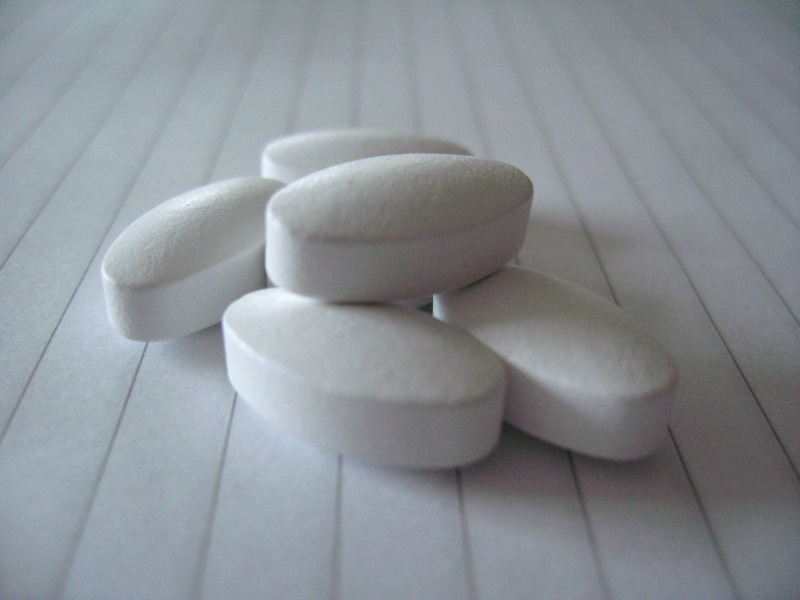 Patients with fibromyalgia syndrome (FMS) typically have widespread chronic pain and fatigue. For those with low vitamin D levels, vitamin D supplements can reduce pain and may be a cost-effective alternative or adjunct to other treatment, said researchers in the current issue of PAIN.
Patients with fibromyalgia syndrome (FMS) typically have widespread chronic pain and fatigue. For those with low vitamin D levels, vitamin D supplements can reduce pain and may be a cost-effective alternative or adjunct to other treatment, said researchers in the current issue of PAIN.In addition to pain and fatigue, individuals diagnosed with FMS may experience sleep disorders, morning stiffness, poor concentration, and occasionally mild-to-severe mental symptoms such as anxiety or depression. The condition can have a significant impact on the patient’s quality of life, resulting in loss of employment and/or withdrawal from social life. There is no cure, and no treatment will address all of the symptoms, but some symptoms may be alleviated by physical therapy, cognitive behavioral therapy, temporary drug therapy (such as amitriptyline, duloxetine, or pregabaline) and multimodal therapies.
Calcifediol (also known as calcidiol, 25-hydroxycholecalciferol, or 25-hydroxyvitamin D (OH)D) is a prehormone produced in the liver by the enzyme cholecalciferol (vitamin D3). Calcifediol is then converted to calcitriol (1,25-(OH)2D3), which is the active form of vitamin D. The concentration of calcifediol in blood is considered the best indicator of vitamin D status.
Researchers hypothesized that vitamin D supplementation would reduce the degree of chronic pain experienced by FMS patients with low levels of calcifediol and also might improve other symptoms. “Low blood levels of calcifediol are especially common in patients with severe pain and fibromyalgia. But although the role of calcifediol in the perception of chronic pain is a widely discussed subject, we lack clear evidence of the role of vitamin D supplementation in fibromyalgia patients,” said lead investigator Florian Wepner, of the Department of Orthopaedic Pain Management, Spine Unit, Orthopaedic Hospital, Speising, Vienna, Austria. “We therefore set out to determine whether raising the calcifediol levels in these patients would alleviate pain and cause a general improvement in concomitant disorders.”
In a randomized controlled trial, 30 women with FMS with low serum calcifediol levels (below 32ng/ml) were randomized to a treatment or control group. The goal for the treatment group was to achieve serum calcifediol levels between 32 and 48ng/ml for 20 weeks via oral cholecalciferol supplements. Serum calcifediol levels were reevaluated after five and 13 weeks, and the dose was reviewed based on the results. The calcifediol levels were measured again 25 weeks after the start of the supplementation, at which time treatment was discontinued, and after a further 24 weeks without supplementation.
Twenty-four weeks after supplementation was stopped, a marked reduction in the level of perceived pain occurred in the treatment group. Between the first and the 25th week on supplementation, the treatment group improved significantly on a scale of physical role functioning, while the placebo group remained unchanged. The treatment group also scored significantly better on a Fibromalgia Impact Questionnaire (FIQ) on the question of “morning fatigue.” However, there were no significant alterations in depression or anxiety symptoms.
“We believe that the data presented in the present study are promising. FMS is a very extensive symptom complex that cannot be explained by a vitamin D deficiency alone. However, vitamin D supplementation may be regarded as a relatively safe and economical treatment for FMS patients and an extremely cost-effective alternative or adjunct to expensive pharmacological treatment as well as physical, behavioral, and multimodal therapies,” said Wepner. “Vitamin D levels should be monitored regularly in FMS patients, especially in the winter season, and raised appropriately.”
Date: January 17, 2014
Source: Elsevier
Filed Under: Drug Discovery




